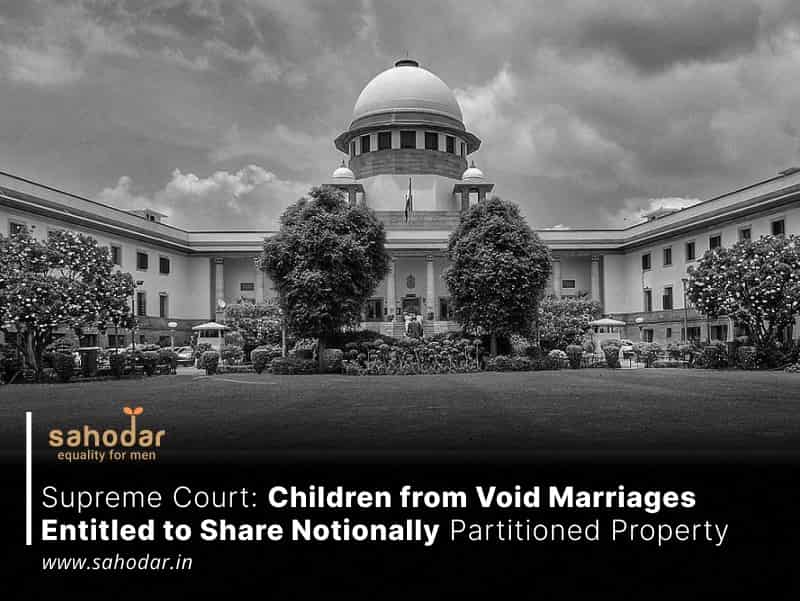The Supreme Court ruled that offspring from a marriage deemed void or voidable have the right to a portion of the property that is hypothetically divided between their parents.
A legal action was initiated for the division and ownership of agricultural lands, considered as joint family or ancestral assets. The request for a share in the property was imaginarily assigned to the deceased, and the assertion was pursued not as coparceners but as the legal heirs of the deceased.
Justice M.M. Sundresh and Justice S.V.N. Bhatti observed, “Irrespective of whether the marriages of Appellant No. 2 and Respondent No. 2 with Muthusamy Gounder are void or voidable, denying the children of Muthusamy Gounder a share in the property of notional partitioned in favour of Muthusamy Gounder, is unsustainable in law and fact.”
The appellants were represented by AOR Rakesh K. Sharma, while the respondents were represented by AOR T.R.B. Sivakumar.
The trial court ruled against the heirs being considered coparceners because there was no evidence to prove that their parents were married. The Madras High Court agreed with the trial court’s decision and stated that the claim for partition based on the existence of the coparcenary between the parties in the case would not be valid.
The Supreme Court pointed out the common infirmity in the examination of issues by both the Trial and the Appellate Courts. The Court remarked, “In the present case, the claim as a coparcenary is unacceptable for want of evidence on the factum of the marriage of Muthusamy Gounder with Appellant No. 2 and Respondent No. 2; the courts below ought to have considered the relief from admitted circumstances on record.”
The Court clarified that in a partition lawsuit, the allocation of shares is determined by the status and timing of the partition decree. The shares can change based on family events and the circumstances presented by the parties involved in the dispute.
- The Court dismissed the argument that the parties claiming a share in the property lacked evidence to support their status.
The Court concluded, “We allow the appeal by passing a preliminary decree of partition for the plaint schedule properties, firstly between Respondent No. 3 and Muthusamy Gounder. Secondly, in the notionally partitioned share of Muthusamy Gounder, his children, i.e., Appellant Nos. 1 and 3, Respondent No. 1 and Respondent No. 3 are allotted equal shares.”
The Court set aside the judgments of both the appellate and trial court.
Accordingly, the Supreme Court allowed the appeal.

